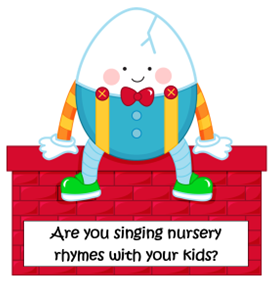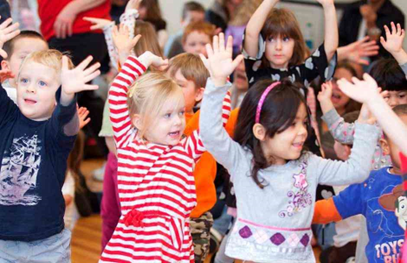Humpty Dumpty!!!
- Mandy Mugurian
- Sep 12, 2023
- 2 min read

Humpty Dumpty sat on a wall,
Humpty Dumpty had a great fall, All the king's horses and all the king's men, Couldn't put Humpty together again.
A nursery rhyme is a traditional poem or song for children in Britain. At The Goslings, we believe very strongly in the importance of the children learning the words, rhymes and actions of nursery rhymes and jingles because they play such an important part in child development.
According to literacy experts, if a child knows eight nursery rhymes off by heart by the time they're four years old, they are usually among the best readers by the time they're eight.
By the age of two, a child is ready to learn some rhymes, to sing them and move their body in response to rhythmic sounds and actions. Rhymes help a child to develop their pronunciation skills and they also help to build up their vocabulary. By repetition and recitation, children learn the syntax of language as well. All this learning happens in a fun way! It is unconscious learning.

As well as language development, learning rhymes also promotes cognitive development. Rhymes may appear to be simple, but the basic skill they pick up is memory and recall. It serves as one of the first steps in building children's memory power. Most nursery rhymes are narrative in nature. They involve sequencing and coherence. Children learn to comprehend the gist of the rhyme when they repeatedly listen to it, hence comprehension skills are also developed. Many rhymes involve numbers and counting. Thus, mathematical skills are also developed.

Another area of child development that rhymes impact is physical development. By portraying the actions to the rhymes, jumping and hopping while singing helps ensure that they attain their movement milestones and develop their motor skills. It also strengthens their muscles, joints and bones, and provides physical activity.
Rhymes also impact a child’s social and emotional development. The interaction with family members, staff and other children while reciting the rhymes helps to form relationships with others: they learn to emote as they sing along and recite and they learn to associate words with emotions. Also, social skills are developed while acting out nursery rhymes and when standing in a circle to recite them.

Other benefits of nursery rhymes also include instilling a love of books and reading and enhancing their creativity and imagination.
A child is never too young to start to have nursery rhymes sung to them! Enjoy having family rhyme time and seeing your child's development through singing and rhyme.


Comments